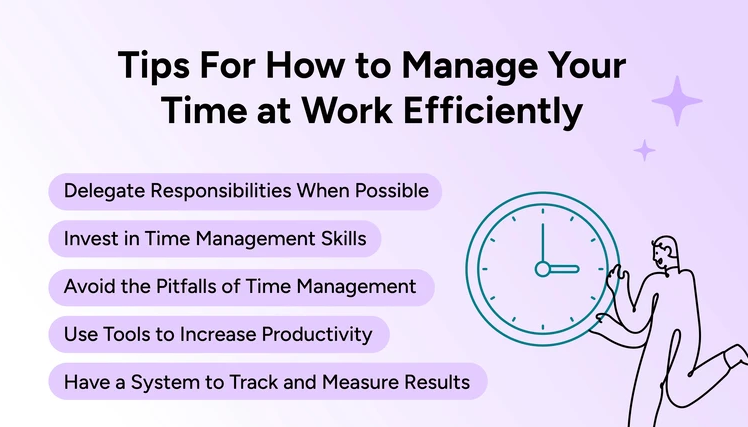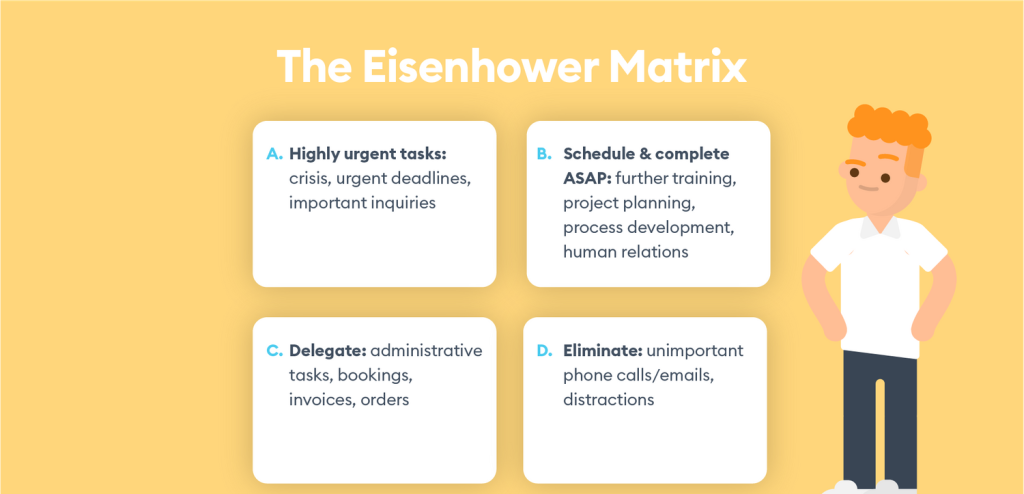Time is one of the most precious assets we have, and mastering the art of managing it well can greatly boost success in both your career and personal life. Whether juggling multiple tasks at work, trying to navigate a busy personal schedule, or staying focused with ADHD, understanding the principles of time management is essential. Poor time management doesn’t just result in missed deadlines; it can lead to reduced productivity, stress, and even burnout.
In this detailed guide, we’ll explore why time management is important, practical tools like time management worksheets, and actionable strategies to create a more productive and balanced life.

Why Is Time Management Important?
Time management, at its heart, is all about maximizing the potential of each day’s hours. Instead of reacting to tasks as they come, effective time management enables individuals to plan, prioritize, and execute their work in alignment with their goals.
Poor time management often results in:
- Stress and Overwhelm: Missed deadlines and an overfilled schedule create unnecessary pressure.
- Lost Opportunities: Poor time allocation reduces the ability to seize new chances for personal or professional growth.
- Decreased Productivity: Without clear priorities, time is wasted on less important or low-value tasks.
On the flip side, strong time management improves every aspect of life. It leads to better decision-making, increased efficiency, and the ability to achieve long-term objectives.
Long-Term Benefits of Effective Time Management
In addition to immediate benefits like meeting deadlines or staying on top of tasks, time management has long-lasting effects. Professionals who master time management build a reputation for reliability, making them more likely to earn promotions, secure leadership roles, or gain the trust of their peers.

Time and Project Management: The Key to Efficiency
Balancing time with complex projects requires specific strategies to keep things running smoothly. Time and project management are closely intertwined since projects depend on clear timelines, careful planning, and diligent execution. When time is mismanaged, projects often spiral out of control, causing delays, budget overruns, and frustrated teams.
The Relationship Between Time and Project Management
- Planning: Projects start with defining goals, breaking them into smaller tasks, and assigning realistic deadlines.
- Prioritizing Tasks: Teams should prioritize tasks with the greatest impact and steer clear of distractions.
- Tracking Progress: Regular progress checks keep everyone aligned with deadlines.
Some practical tools to aid time and project management include:
- Gantt Charts: Visual timelines that break projects into tasks and show dependencies.
- Kanban Boards: Platforms like Trello and Asana help teams monitor tasks in real-time.
- Digital Calendars: Tools like Google Calendar keep schedules organized and transparent.
Focusing on both time and project management ensures that teams remain on track, avoid last-minute surprises, and meet their goals with precision.
Why Is Time Management Important in the Workplace?
In today’s workplace, effective time management is key to achieving success. Without it, employees risk falling behind on deliverables, causing disruptions that impact their colleagues and clients. On a broader scale, organizations suffer when employees fail to meet expectations, resulting in reduced productivity and potential revenue loss.

Workplace Benefits of Time Management
Here are just a few of the ways time management drives success in professional settings:
- Boosted Productivity: Employees who organize their time can concentrate on crucial tasks without losing focus.
- Improved Collaboration: Teams with strong time management skills synchronize their efforts, ensuring smooth workflows.
- Reduced Burnout: Employees who steer clear of last-minute rushes enjoy lower stress levels and a healthier work-life balance.
- Better Client Relations: Delivering projects on time strengthens client trust and satisfaction.
Companies that prioritize time management training for their teams often see noticeable improvements in morale, efficiency, and results.
Time Management Challenges in Today’s Workplace
Modern workplaces are filled with potential time management obstacles, from constant emails to unnecessary meetings. Employees must learn to guard their time by setting boundaries, using scheduling tools, and regularly evaluating how they spend their hours.
Time Management Worksheets: A Practical Tool for Organization
A time management worksheet is a simple yet powerful tool for gaining control over your schedule. These worksheets are designed to help individuals organize their priorities, plan their day, and allocate time effectively.
How a Time Management Worksheet Works
Typically, a worksheet includes sections for:
- Daily Tasks: Listing activities in order of priority.
- Time Blocks: Setting aside dedicated time blocks for each task.
- Deadlines: Determining the deadlines for each task.
- Reflection: Reviewing what worked well and areas for improvement.
Worksheets can be adapted for different settings, whether used for individual schedules or team planning.
Benefits of Using a Time Management Worksheet
- Clarity and Focus: Visualizing tasks helps eliminate guesswork and mental clutter.
- Accountability: Checking off completed tasks builds momentum and ensures nothing is forgotten.
- Flexibility: Worksheets can be customized to suit individual needs and shifting priorities.
For those who prefer digital solutions, apps like Microsoft Planner or Notion offer templates for digital time management worksheets.
Time Management Activities to Build Better Habits
Building strong time management skills goes beyond learning strategies—it’s about practicing them consistently until they become a habit. Time management activities are an excellent way to reinforce these skills, especially in team settings.

Activities for Strengthening Time Management
- The Pomodoro Challenge: Participants dedicate 25 minutes to a single task, then take a brief break, repeating the process to stay focused and productive.
- Priority Mapping: Groups create a list of tasks and assign them to quadrants based on urgency and importance, practicing the Eisenhower Matrix.
- Time Logging Exercise: Team members track every activity they perform in a day to identify inefficiencies.
- Delegation Workshop: Get in the habit of delegating tasks to team members who are best suited for them, considering their strengths and current responsibilities.
Incorporating these activities into meetings or training sessions can create a culture of improved time management across the organization.
ADHD Time Management: Strategies for Focus and Success
Time management can feel particularly daunting for individuals with ADHD. The unique challenges they face—difficulty focusing, impulsivity, and a tendency to procrastinate—require tailored strategies.
ADHD-Friendly Time Management Tips
- Use Timers and Alarms: Set multiple reminders to stay on track throughout the day.
- Break Tasks into Small Steps: Big projects can seem daunting, but dividing them into smaller parts makes them easier to tackle.
- Adopt Routines: Consistency is key; create a daily schedule and stick to it.
- Limit Distractions: Work in a clutter-free, quiet environment to minimize external interruptions.
- Leverage Technology: Apps like RescueTime or Focus Booster are designed to improve time management for ADHD users.
Even small adjustments can have a big impact, enabling individuals with ADHD to thrive both professionally and personally.
The Role of Time Management Training
Investing in time management training benefits both individuals and organizations by boosting productivity and efficiency. These programs teach participants practical techniques and offer personalized guidance to tackle time management challenges.
What to Expect from Time Management Training
- Self-Assessment: Identifying personal strengths and weaknesses in managing time.
- Goal-Setting Exercises: Learning how to define and achieve SMART goals.
- Procrastination Solutions: Techniques for overcoming delays and staying motivated.
- Scheduling Best Practices: Using tools like digital calendars and task planners effectively.
For businesses, offering time management training to employees can enhance teamwork, reduce inefficiencies, and boost overall performance.
Building a Culture of Time Management
Improving individual skills is only part of the equation. For sustained success, organizations need to build a culture that emphasizes and encourages effective time management. This involves:
- Setting Clear Expectations: Leaders should define priorities and deadlines for their teams.
- Providing Resources: Offer tools, training, and support for time management improvement.
- Encouraging Communication: Regular check-ins ensure everyone stays aligned and avoids unnecessary confusion.
When businesses prioritize time management, the benefits ripple throughout the organization, improving employee satisfaction and client outcomes alike.
Take Control of Your Time
Time management isn’t merely about checking off tasks—it’s about finding balance, achieving meaningful goals, and living a fulfilling life. Whether you’re exploring time management worksheets, engaging in skill-building activities, or investing in professional training, the right approach can make all the difference.Make every minute count! Visit CindyCavoto.com for expert guidance, tools, and training that will help you get more out of every day. With practical strategies and tailored guidance, we’re ready to help you take control of your time and reach your goals. Learn more about Cindy’s Personalized Time Management Coaching Today!

